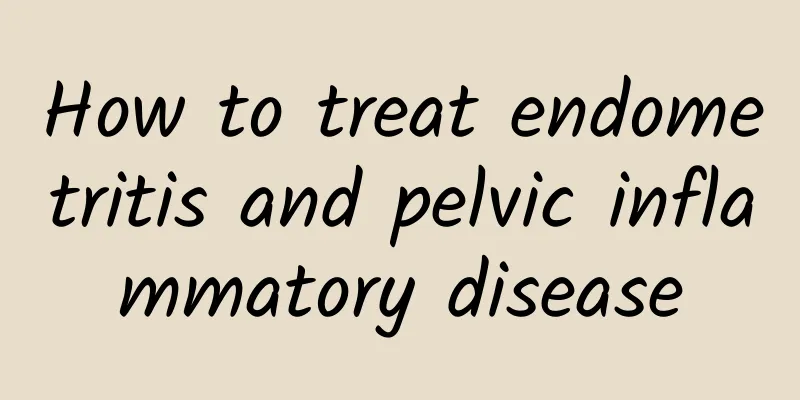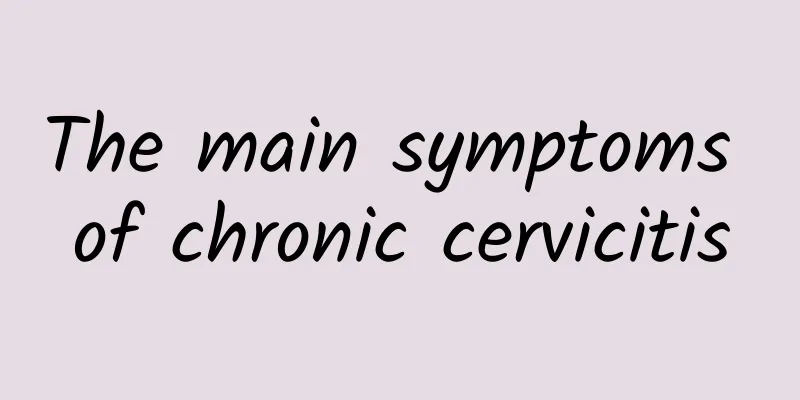How to treat endometritis and pelvic inflammatory disease

|
Endometritis and pelvic inflammatory disease can be effectively managed through antibiotic treatment, physical therapy, and self-care in daily life. In severe cases, surgical intervention may be required. It is key to see a doctor as soon as possible to determine the cause and follow the guidance of a professional doctor to decide on a treatment plan. 1) Antibiotic treatment Antibiotics are the first choice for treatment of endometritis and pelvic inflammatory disease. Common antibiotic combinations include: -Ampicillin combined with clavulanic acid is often used for infections caused by gram-positive and gram-negative bacteria. -Gentamicin combined with metronidazole is suitable for infections caused by anaerobic bacteria. -Levofloxacin, especially in cases of chlamydia or mycoplasma infection. During treatment, you must strictly follow the doctor's instructions to complete the course of antibiotics to prevent bacterial resistance or recurrence. In most cases, doctors will use anti-inflammatory drugs to relieve symptoms. 2) Physical therapy Physical therapy can help relieve inflammation and improve circulation. -Medium frequency electrotherapy: can promote the absorption of inflammatory exudation and relieve pain. -Hot compress: Hot compress can relieve local pain and help repair inflammation, but avoid overheating and burns. - Local pelvic infrared therapy: Use infrared rays to increase blood flow to the affected area and promote the metabolism of inflammatory substances. Note that physical therapy should be used in a standardized manner under the guidance of a doctor. 3) Surgery if necessary If there is a pelvic abscess or the inflammation has spread to cause significant tissue damage, your doctor may recommend surgery. Common surgeries include: -Diversion surgery: Draining fluid or abscesses and cleaning the source of infection. -Uterine curettage: Especially for patients with severe endometritis, it removes necrotic tissue to promote endometrial regeneration. -Ovarian or fallopian tube repair: For patients with blocked fallopian tubes, it helps restore reproductive function. 4) Self-care in daily life -Dietary adjustment: Eat more foods rich in vitamin C and protein to enhance immunity, such as eggs, citrus fruits and spinach. -Regular work and rest schedule: Ensure adequate sleep to facilitate physical recovery. -Pay attention to personal hygiene: keep the vulva clean and dry, avoid using irritating cleaning agents to prevent secondary infection. Endometritis and pelvic inflammatory disease need to be detected and treated as early as possible to avoid worsening of the disease or affecting fertility. Antibiotics are the main treatment, while physical and surgical treatments are auxiliary or necessary means. Combining scientific treatment with a healthy lifestyle, patients usually recover well. It is recommended that those with symptoms seek medical attention in a timely manner and follow the doctor's advice to complete the treatment. |
<<: How much does it cost to treat hydatidiform mole?
>>: What are the symptoms of candidiasis vaginitis
Recommend
Which New Year's dish has the highest calories? Understand it in seconds with just one table, and don’t misunderstand Buddha Jumps Over the Wall again! 2 Diet Tips to Get Rid of Happy Fat
The Chinese New Year is coming, and the reunion a...
What causes endometrial polyps?
Endometrial polyps are a common gynecological dis...
Luffa is low in calories and rich in dietary fiber, which helps with weight loss and bowel movements! Nutritionist Chen Bojun teaches 2 recipes of loofah and pork
The loofah is juicy, refreshing and sweet. It is ...
What are the checks before abortion?
Women who have undergone abortion surgery must no...
Can you still get pregnant with subserosal uterine fibroids? What are the prevention methods for subserosal uterine fibroids?
Since the formation of uterine fibroids is relate...
Nursing plan for patients with adenomyosis
Let me tell you how to take care of adenomyosis. ...
Will women with cervical erosion get cervical cancer? Five things you need to do to prevent cervical cancer
Cervical erosion sounds scary at first, and peopl...
What are the dangers of threatened abortion?
Illness always leaves trauma, and there will alwa...
What to eat if you have congenital vaginal agenesis
Gynecological diseases are quite annoying for wom...
Do people who have early menopause look younger?
People who go through menopause early do not nece...
Tell you about several common symptoms of acute adnexitis
Among the many diseases of adnexitis, acute adnex...
How to regulate premature ovarian failure and menstruation at the age of 36
How to regulate premature ovarian failure and ame...
Is cervical erosion contagious?
Cervical erosion is a very common gynecological d...
Pelvic inflammatory disease has many causes and treatment needs to be early
Pelvic inflammatory disease is a common gynecolog...
How to check for hyperprolactinemia
Hyperprolactinemia is the most common pituitary d...









